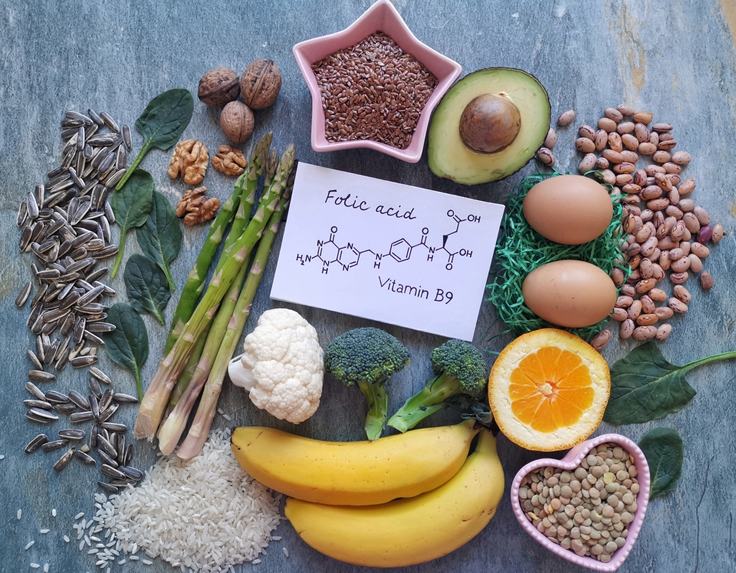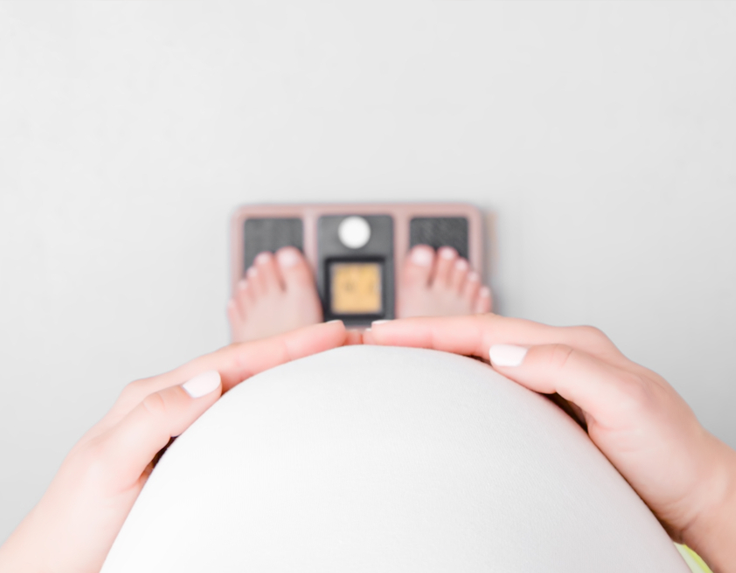Eating Well While Pregnant: Nutrition for Two
Bringing a new life into the world is a transformative and awe-inspiring journey that comes with its own set of joys, challenges, and responsibilities. Among these responsibilities, maintaining a healthy and well-balanced diet during pregnancy is paramount for the well-being of both the expectant mother and her developing baby. As the saying goes, “You are what you eat,” and during this crucial time, the importance of nutrition is magnified, as the mother’s choices directly impact the growth and development of the little one growing within.

From essential nutrients to mindful food choices, let’s delve into the science behind nourishing both the mother and the unborn child, offering practical tips, expert advice, and the unique nutritional needs of pregnancy. Whether you are a first-time mom-to-be seeking guidance or an experienced mother looking to refresh your knowledge, we’ll navigate through prenatal nutrition, fostering a foundation for a happy, healthy, and nourished pregnancy journey.
Essential nutrients for pregnancy
Pregnancy is a miraculous journey marked by the creation of new life within, and during this transformative time, the body undergoes numerous changes to support the development of the growing baby. A crucial aspect of ensuring a healthy pregnancy is providing the body with the essential nutrients it needs to meet the increased demands of both the mother and the developing fetus.
Folic Acid:
One of the first essential nutrients to prioritize during pregnancy is folic acid. This B vitamin is instrumental in the early stages of fetal development, particularly in the formation of the neural tube, which eventually develops into the baby’s brain and spinal cord. Adequate folic acid intake in the early weeks of pregnancy significantly reduces the risk of neural tube defects, making it a cornerstone for prenatal nutrition.
Iron:
The body’s demand for iron increases during pregnancy to support the production of red blood cells, which carry oxygen to both the mother and the baby. Iron deficiency can lead to anaemia, causing fatigue and increasing the risk of preterm birth. Including iron-rich foods in the diet and, if necessary, taking iron supplements as recommended by healthcare professionals can help maintain optimal iron levels.
Calcium:
Calcium is essential for the development of the baby’s bones and teeth, as well as for maintaining the mother’s bone health. In the absence of adequate dietary calcium, the body may draw from the mother’s own calcium stores, emphasizing the importance of meeting daily calcium requirements through dairy products, fortified foods, and supplements if needed.
Omega-3 Fatty Acids:
Omega-3 fatty acids, particularly DHA (docosahexaenoic acid), are crucial for the development of the baby’s brain and vision. Incorporating sources of omega-3s, such as fatty fish, flaxseeds, and walnuts, into the diet can positively impact cognitive and visual development during pregnancy.
Protein:
Protein is a fundamental nutrient that plays a key role in the growth and development of the baby’s tissues, muscles, and organs. Including a variety of protein sources, such as lean meats, legumes, dairy, and plant-based proteins, ensures that both the mother and baby receive the necessary amino acids for optimal development.
Ensuring a well-balanced and nutrient-rich diet, along with any necessary supplements prescribed by healthcare professionals, sets the stage for a healthy and thriving pregnancy. By embracing the power of these key nutrients, mothers-to-be can confidently nourish themselves and their little ones, laying the foundation for a bright and healthy future.
Managing morning sickness through nutrition
The joyous news of pregnancy is often accompanied by the less-than-joyful companion known as morning sickness. For many expectant mothers, the queasiness that can strike at any time of the day poses a unique challenge. While morning sickness is a common and usually temporary aspect of pregnancy, adopting a thoughtful and nutrition-focused approach can help ease its impact and ensure both the mother and baby receive the necessary nourishment during this sensitive time.

- Hydration: Staying well-hydrated is crucial during pregnancy, especially when dealing with morning sickness. Instead of trying to consume large amounts of water in one go, opt for small, frequent sips throughout the day. Adding a slice of lemon or a sprig of mint to water can enhance its appeal and soothe the stomach.
- Small, Frequent Meals : Rather than three large meals, consider breaking your daily food intake into smaller, more frequent meals. This approach helps keep your blood sugar levels stable and provides a steady supply of nutrients to combat nausea. Opt for easily digestible foods like crackers, dry toast, or plain rice.
- Ginger: Ginger has long been celebrated for its anti-nausea properties. Incorporate ginger into your diet through ginger tea, ginger ale, or ginger-flavored snacks. Many women find relief from nausea by sipping on ginger-infused beverages or nibbling on ginger candies.
- High-Protein Snacks: Protein-rich snacks can be particularly helpful in managing morning sickness. Choose options like Greek yogurt, nuts, seeds, or lean meats. These snacks not only provide essential nutrients but can also help stabilize blood sugar levels, reducing the likelihood of nausea.
- Avoid Strong Odors: Certain smells can trigger nausea, so it’s advisable to steer clear of strong odors, whether from cooking or household products. Opt for well-ventilated spaces and consider consuming cold or room-temperature foods to minimize the impact of aromas.
- Vitamin B6-Rich Foods: Vitamin B6 is known for its anti-nausea properties. Incorporate B6-rich foods into your diet, such as bananas, avocados, poultry, and fortified cereals. If needed, consult with your healthcare provider about vitamin B6 supplements to help manage morning sickness.
- Hydration through foods:If plain water is unappealing, focus on hydrating foods like water-rich fruits (watermelon, cucumber) and broths. These can contribute to your fluid intake while providing essential vitamins and minerals.
- Mindful Rest and Relaxation: Stress and fatigue can exacerbate morning sickness. Prioritize rest and relaxation, and consider incorporating practices like deep breathing or prenatal yoga to help manage stress levels.
Remember that each pregnancy is unique, and consulting with your healthcare provider can provide personalized guidance to ensure both you and your baby receive the necessary nutrition despite the challenges of morning sickness.
Nutrition for a healthy weight gain during pregnancy
Striking the right balance by achieving healthy weight gain during pregnancy is essential for the mother’s health, the baby’s development, and the overall success of the pregnancy. Let’s explore the key principles of nutrition to support a healthy weight gain journey.

- Quality Calories Over Quantity
While it’s normal and expected to gain weight during pregnancy, the focus should be on the quality of calories consumed rather than sheer quantity. Opt for nutrient-dense foods that provide essential vitamins, minerals, and protein. Incorporate a variety of fruits, vegetables, whole grains, lean proteins, and healthy fats into your diet to ensure a well-rounded and balanced nutritional intake. - Embrace Nutrient-Rich Foods
Certain nutrients become especially important during pregnancy. Ensure your diet includes a variety of foods rich in: - Folate: Crucial for the baby’s neural tube development.
- Calcium: Essential for bone and teeth formation
- Iron: Supports increased blood volume and prevents anemia
- Protein: Vital for the growth of the baby’s tissues and organs
- Omega-3 Fatty Acids: Promotes the baby’s brain and vision development.
- Controlled Portion Sizes
While it’s essential to meet your increased calorie needs during pregnancy, portion control remains important. Instead of large meals, focus on regular, smaller meals and snacks throughout the day. This approach helps manage energy levels, prevents overeating, and aids digestion. - Stay Hydrated
Proper hydration is key for overall health and can contribute to a sense of fullness. Aim to drink plenty of water throughout the day. Hydration is especially important for preventing constipation, a common concern during pregnancy. - Balanced Meal Composition
Constructing well-balanced meals is crucial for providing sustained energy and essential nutrients. Each meal should ideally include a combination of carbohydrates, proteins, and healthy fats. This balance helps regulate blood sugar levels, keeping energy levels stable and providing the necessary nutrients for both mother and baby. - Regular Exercise
In conjunction with a balanced diet, regular exercise is an important component of maintaining a healthy weight during pregnancy. Consult with your healthcare provider to determine appropriate exercises that align with your fitness level and gestational stage. - Listen to Your Body
Pregnancy brings unique cravings and aversions. Pay attention to your body’s signals, eat when hungry, and stop when satisfied. This mindful approach can help prevent unnecessary weight gain while ensuring that you meet your nutritional requirements.
Navigating healthy weight gain during pregnancy is a nuanced journey that requires thoughtful attention to nutrition and lifestyle. By prioritizing nutrient-dense foods, maintaining portion control, staying hydrated, and incorporating regular exercise, expectant mothers can support not only their well-being but also contribute to the healthy development of their growing babies. Consulting with healthcare providers for personalized guidance ensures that the weight gain journey aligns with individual needs and promotes a positive and balanced pregnancy experience.
As we conclude our exploration of nutrition for healthy weight gain during pregnancy, it’s essential to address some common questions that often arise regarding the frequency and quantity of meals during this transformative time.
How many times must a pregnant woman eat?
Pregnant women are generally advised to eat small, balanced meals and snacks throughout the day, aiming for three main meals and two to three healthy snacks. This approach helps maintain stable blood sugar levels, provides sustained energy, and ensures a consistent flow of essential nutrients to both the mother and the growing baby.
Should a pregnant woman eat for 2?
Contrary to the popular saying, “eating for two” doesn’t mean doubling your caloric intake. While caloric needs do increase during pregnancy, it’s crucial to focus on the quality of calories rather than the quantity. Opting for nutrient-dense foods and embracing a balanced diet is more beneficial than overeating. Consult with your healthcare provider to determine the appropriate calorie intake based on your individual needs and gestational stage.
When should I start eating for two in pregnancy?
The concept of “eating for two” is not about doubling your food intake from day one. In the first trimester, caloric needs typically remain consistent with pre-pregnancy levels. As the pregnancy progresses, a gradual increase in calorie intake is recommended. Consulting with a healthcare professional can provide personalized guidance on when and how to adjust your diet to support a healthy weight gain throughout the various stages of pregnancy.










































Leave a comment